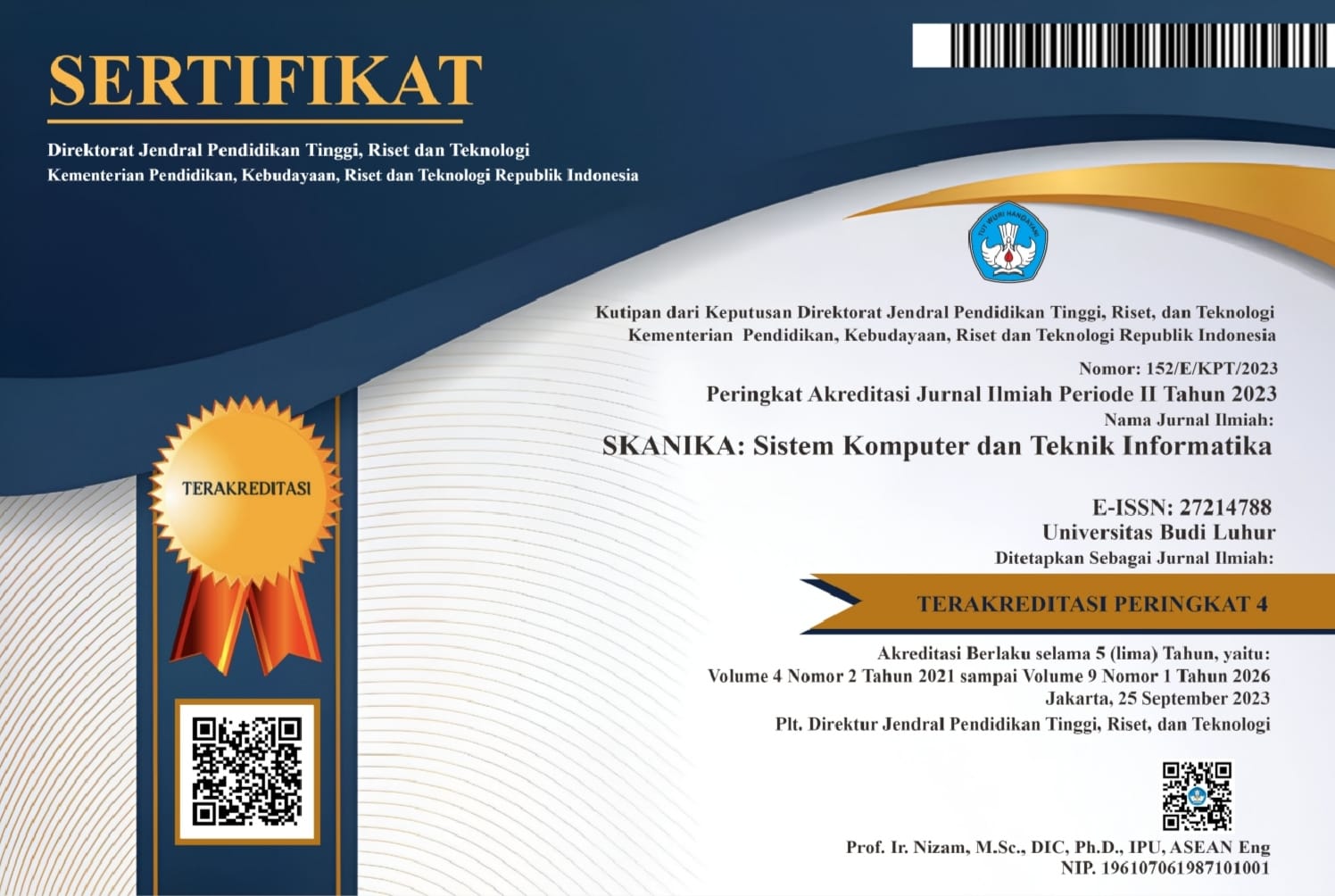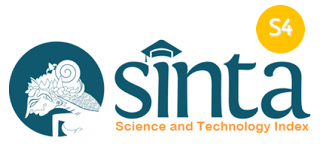TEKNOLOGI PROCESS AWARE INFORMATION SYSTEM (PAIS) MANAJEMEN EKSTRAKURIKULER UNTUK OTOMASI PEMANTAUAN KEGIATAN
DOI:
https://doi.org/10.36080/skanika.v7i1.3116Keywords:
extracurricular, management, PAIS, education, real-timeAbstract
Education in Indonesia, including in Malang City, has seen rapid development in recent decades. Extracurricular activities, as an integral part of education, offer students opportunities to develop skills, talents, and interests beyond the main curriculum. However, the current management of extracurricular activities is still manual and inefficient. To address this issue, we propose the implementation of a Process-Aware Information System (PAIS) to automate the monitoring of extracurricular activities. This system involves input such as school data, student data, and extracurricular data. The outputs include reports on extracurricular activities, student talents and interests, and school achievements. The process includes student registration for extracurricular activities, validation by administrators, activity scheduling, attendance monitoring, and reporting. This system is expected to efficiently and accurately monitor these activities. Through the PAIS workflow, we ensure more efficient and real-time management and monitoring of extracurricular activities. This system assists in improving extracurricular management, data accuracy, better decision-making, and time savings.
Downloads
References
[2] Qiqi, Y. Z., and Ipit, S. M., “Manajemen Ekstrakurikuler Madrasah,” Jurnal Isema: Islamic Educational Management, vol. 3, no. 1, pp. 41-51, 2018.
[3] Arpit, J., et al, “FireNet: a specialized lightweight fire & smoke detection model for real-time IoT applications,” arXiv preprint arXiv:1905.11922, 2019.
[4] Giovanna, S. and Giuseppe, D. P., “A mobile system for real-time context-aware monitoring of patients’ health and fainting,” IJDMB, vol. 10, no. 4, p. 407, 2014, doi: 10.1504/IJDMB.2014.064891.
[5] N. Malhotra, “Implementation of Data Marts in Data Warehouse,” International Journal of Advance Research, Ideas and Innovations in Technology, vol. 1, 2015, [Online]. Available: https://api.semanticscholar.org/CorpusID:169018361
[6] Chad, L., “Extracurricular activities can play a central role in K-12 education,” Phi Delta Kappan, vol. 102, no. 8, pp. 14–19, May 2021.
[7] T. Makhshun, “Model Pengembangan Kurikulum Pai SMP Di Kota Semarang,” JSPI, vol. 1, no. 1, pp. 97, Feb 2018.
[8] I. T. Islamy, H. M. Astuti, dan R. P. Wibowo, “Perancangan dan Pembuatan Sistem Pelaporan Kinerja Berbasis Online untuk Pranata Komputer,” Jurnal Informatika, vol. 8, no. 1, pp. 91, 2020.
[9] Jameel, K., Adil, A., & Bahjat, M., “Analyses the Performance of Data Warehouse Architecture Types,” Journal of Soft Computing and Data Mining, 3(1), 45-57, 2020.
[10] F. Piro et al., “A 1-μW Radiation-Hard Front-End in a 0.18-μm CMOS Process for the MALTA2 Monolithic Sensor,” IEEE Transactions on Nuclear Science, vol. 69, pp. 1299–1309, 2022.
Downloads
Published
How to Cite
Issue
Section
License
CC BY-SA 4.0
Creative Commons Attribution-ShareAlike 4.0 International
This license requires that reusers give credit to the creator. It allows reusers to distribute, remix, adapt, and build upon the material in any medium or format, even for commercial purposes. If others remix, adapt, or build upon the material, they must license the modified material under identical terms.
BY: Credit must be given to you, the creator.
SA: Adaptations must be shared under the same terms.ng












